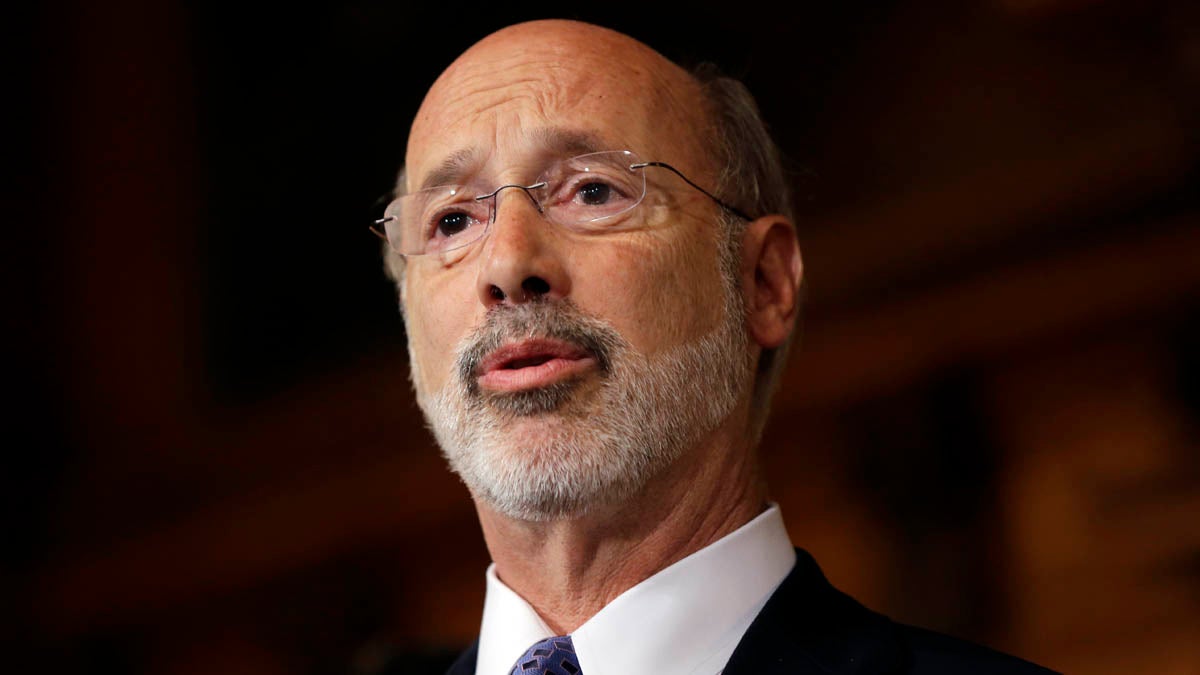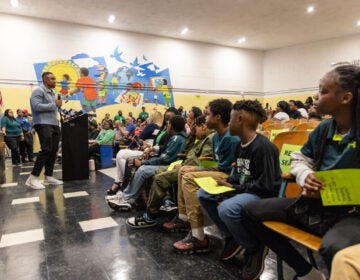Democrats stand up for their school districts in opposing Wolf funding plan
Listen
Gov. Tom Wolf's plan to restore funding to districts hurt most by past cuts suffered a major blow last week. And now he faces another critical veto decision. (AP file photo)
Pennsylvania’s protracted budget negotiation ended nearly a month ago, but the fight continues over how $150 million in new education spending will be divided amongst the state’s 500 school districts.
Gov. Tom Wolf’s plan to restore funding to districts hurt most by past cuts suffered a major blow last week. And now he faces another critical veto decision.
Wolf’s “restoration” funding plan prioritizes districts still suffering from disproportionate funding cuts under his predecessor, Gov. Tom Corbett.
Philadelphia, Chester-Upland and Pittsburgh fare especially well in that plan, and all districts would see an increase, but the overwhelming majority of districts would get a bigger boost under the new student-weighted funding formula plan as passed by the legislature.
Wolf vetoed that last month. Last week, however, lawmakers passed it again within a larger fiscal code bill — this time with veto-proof majorities in both the House and Senate.
In interviews with several Democratic state senators, one reason stood out.
“At the end of the day, it would have been difficult for any legislator to vote against their own best interests as it relates to their school districts,” said John Blake, D-Lackawanna.
But there were others as well.
“I think it was more of a principle thing, where you had everyone come together for the funding formula and agree on it,” said Wayne Fontana, D-Allegheny, who praised the work of the bipartisan commission who worked for more than a year to hash out the shape of the formula.
“We have to move away from this idea that we are going to govern by executive order, or executive action,” said John Yudichak, D-Luzerne.
The eight Democratic senators who joined their counterparts across the aisle to approve the fiscal code last week dealt a serious blow to Wolf’s restoration plan.
“But let’s be clear, the people in his own party we’re not voting against this governor,” said Blake. “They were voting for themselves.”
Under Wolf’s distribution plan, Scranton would have done much worse, and so too would many impoverished urban districts such as Reading, Erie, Harrisburg and Easton. The Wolf administration points out that those districts have already had their 2011 cuts either restored or nearly so.
But almost all of the Democratic senators and representatives who represent those cities rejected that logic, and rebuked the governor’s unilateral formula.
Wolf could decide this week to again veto the deal. But that would force an override vote that has the potential to embarrass the governor and leave him in the same position.
If Wolf’s plan dies, the School District of Philadelphia will receive $35 million less than anticipated. That’s a significant setback for a district that took the brunt of the cuts in 2011 and has since been unable to afford basic full-time school staff for all of its children.
“Because of what the governor proposed, you’re comparing the two. Well maybe he shouldn’t have proposed that,” said Fontana, who represents Pittsburgh and other surrounding districts.
He said he’s sympathetic to the woes of the state’s two largest school districts, but stressed that the new student-weighted formula would help them both in the long run.
In the short-term, he said he’ll stand with Wolf to fight for more education dollars.
“That’s a fight for another day. And that other day is real close,” he said. “We’re going right back into another budget.”
Real relief is not likely for the Philadelphia district until lawmakers take up another Wolf priority — revising the state charter law, which the auditor general calls the worst in the nation.
WHYY is your source for fact-based, in-depth journalism and information. As a nonprofit organization, we rely on financial support from readers like you. Please give today.





